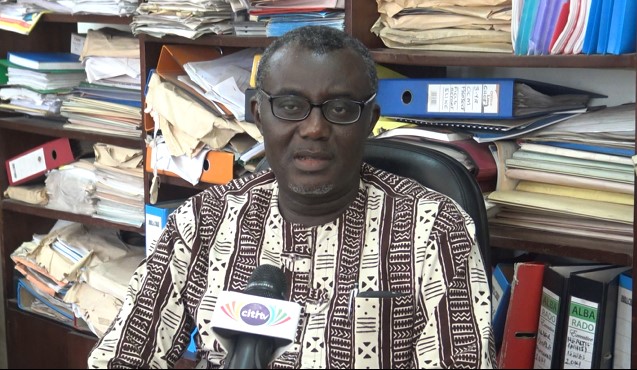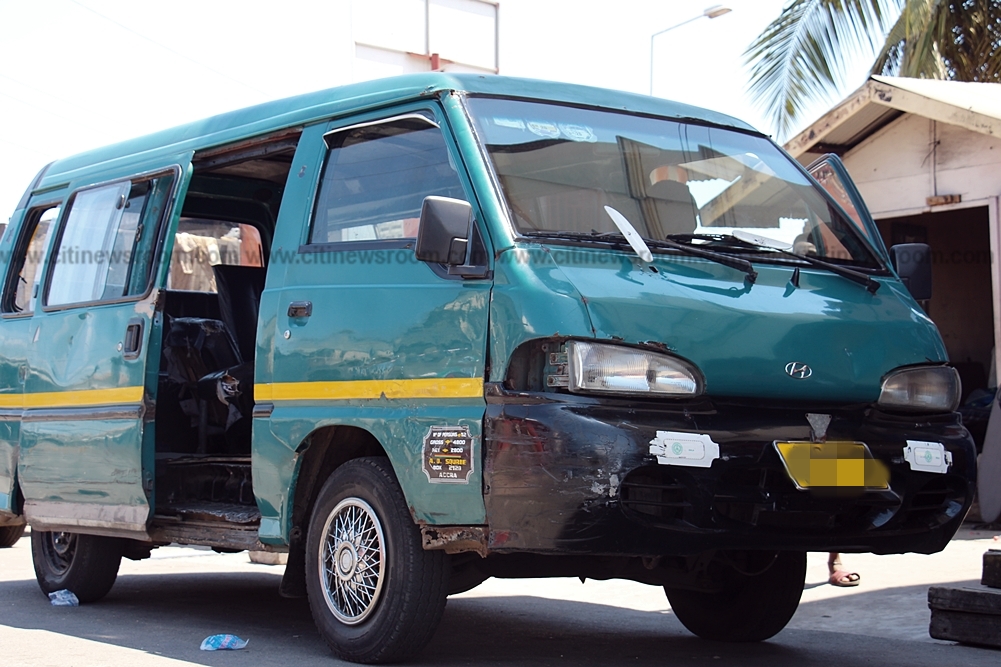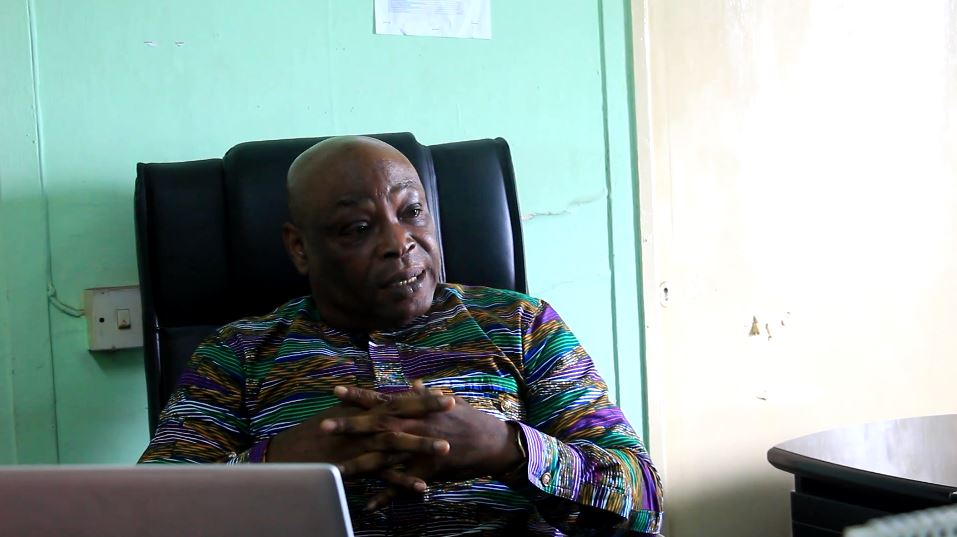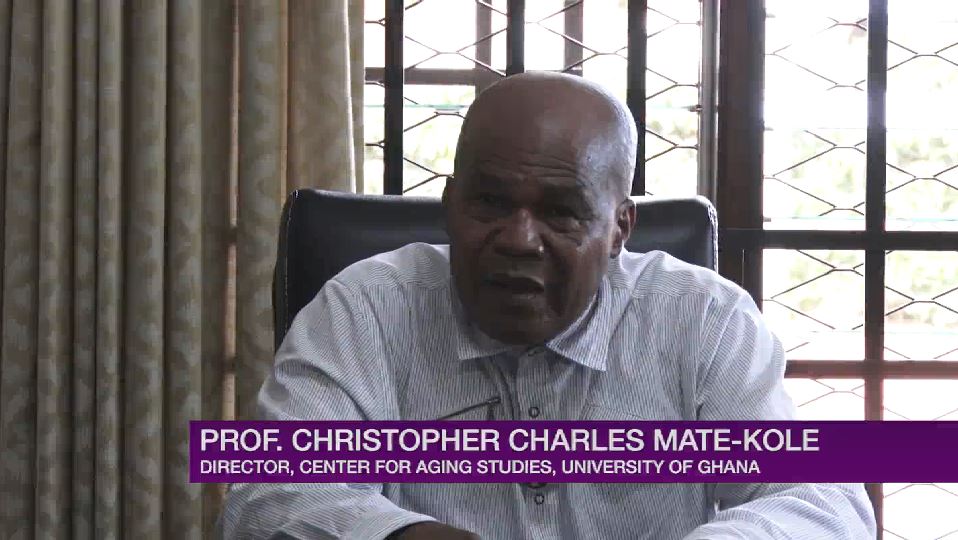“If you don’t die prematurely, you will age, but can you age comfortably in Ghana’s urban areas?”
Population trends globally show that people are living longer, and the situation is no different in Ghana.
The reason for this, among other things is, the general improvement in healthcare.
From about 327,000 in 1960, persons aged 60 or older in Ghana are nearly 1.9 million currently with women being in the majority according to estimates by the National Population Council.
By 2050, this number is expected to increase to over 5.6 million.
A people in need of support
While there are many advantages to having many older people in a population, Ghana is unable to reap dividends from its aged.
This is largely because there are many socio-economic and cultural challenges that make life as an aged person in Ghana challenging; they are not care for
“It costs me between GH¢140 and GH¢ 180 on each visit to the hospital… It is very difficult for me but I don’t have an option. If you skip, you can die because you basically live on the drugs,” said Florence Mettle, 84, and a resident of Adabraka.
From her little provision shop in front of her family house, she laments the cost of medical bills.
She funds her medical bills with profits from her small business which she says is a huge struggle.
She wishes for free medical care to cushion her.
“I fund my medical bills from the petty sales. If healthcare is free, we will really appreciate it because most of the things I pay for would be covered. Sale is very low,” she said.
Struggling healthcare
An increase in the population of older people will most likely lead to a corresponding increase in non-communicable diseases and degenerative disease such as high blood pressure, skin diseases, diabetes, eye and ear infections, rheumatic diseases and cancers.
The National Health Insurance Scheme (NHIS) is Ghana’s biggest healthcare intervention that saves patients varying sums on their healthcare bills.
The major drive of the government has been to increase the number of aged persons with the card. Though they do not pay premium, they must part with GH¢5 being what the NHIA describes as administrative cost.
The NHIS however, applies this discount to only persons above 70 years. Seniors aged 60 and above but below 70 are left out.
Ebenezer Adjetey-Sorsey, the Executive Director of Help Age Ghana, a non-profit organization that supports the elderly expressed regret that there is virtually no healthcare support for the aged in Ghana.

“We are under the assumption that by exempting people who are 70 years and above from paying of premium under the National Health Insurance Scheme (NHIS), it means that we are taking care of older people. Healthcare of older people is a specialized area called geriatrics and we’ve not done much in training geriatric nurses and doctors for our clinics,” said Ebenezer Adjetey-Sorsey.
No specialist healthcare
Ghana and Denmark in 2015 signed a Memorandum of Understanding for the provision of geriatric care services in the country but that did not materialize into a proper geriatrics service in the country.
The lack of knowledge about care for the aged among some doctors and nurses sometimes results in death of the elderly at facilities.
The ignorance among some health workers is evident in their handling of the elderly at hospitals and clinics.
“These days if you are over 60 years and you go to the hospital, they say you are too old and because you are too old you are bound to die so why should we spend so much time on you. But that is totally false,” Prof. Christopher Charles Mate-Kole, the founding Director of the Center for Aging Studies at the University of Ghana remarked.
“Right now we have neglected them, total neglect and if we continue along this path, we are in trouble,” he added.
The Korle-Bu Teaching Hospital is the only known State health facility with a dedicated geriatrics clinic.
Dela Ashiagbor, a Deputy Director at the Department of Social Welfare said discussions towards the training of geriatric nurses and doctors in the Ghana is still ongoing and “very soon the Ministry of Health will get through the MoU with them [Denmark] so that we can do proper integration of geriatric training for the health sector.”
A president at 72
Ghana’s President, Nana Akufo-Addo is 72 years old, and an aged person per the definition of World Health Organization (WHO).
However, unlike most people about his age in Ghana, he articulates well, appears energetic and carries out his work without any form of walking aid. He enjoys free quality healthcare, which may be responsible for his physical and psychological well-being. This perhaps is proof that given proper care, the aged in Ghana can be in good health.
Unsupportive transport system
Movement of the elderly in Ghana especially in urban areas is a major challenge particularly because of the existing transport system.
For Florence Mettle, taxis are her preferred means of transport, although the commonest and cheapest form of transport in Ghana is ‘trotro’.

“Our transportation system is faulty. The buses we are bringing in are not the type of buses, which are convenient for older people and even people with disability. In some places, there are buses that stop and the stairs can be lowered but this place, we are still climbing,” said HelpAge Ghana’s Ebenezer Adjetey- Sorsey.
In my interview with him at his Osu Office, he noted that development in Ghana’s urban spaces gives very little consideration to the aged and the state of transportation in the country is an example.
In many communities especially in urban Ghana, pavements and free walkways have been rented out to small-businesses to mount kiosks and containers, impeding movement of many especially the aged.
Age-friendly communities are expected to have pavements that can allow the aged take walks or move about freely and safely. Public parks where the aged can take brief rests to or from their home must also be available.
But these are conspicuously missing in Ghana.
In 2015, the government through the Ministry of Gender, Children and Social Protection launched the EBAN Elderly Welfare Card to provide quick services to persons 65 years and above at hospitals, banks and other public places without joining queues for those services.
The card was also to grant the elderly easy access to bus transport services all over the country at a discount of 50%, but it failed.
Mr. Ashiagbor explained that the private transport owners were not cooperating after the trial period because “they felt they were losing.”

The country’s new government under President Akufo-Addo plans to introduce a similar system; Freedom Pass.
Although the Freedom pass was pledged in the New Patriotic Party (NPP) manifesto of 2016, the programme is yet to be rolled out after over two years of the party being in government.
Leap programme
The Livelihood Empowerment Against Poverty (LEAP) programme is one of the very few social intervention programs in the country that benefits some aged people; those without productive capacity.
259,553 aged persons are reported to have been enrolled on the program, receiving stipends every two months.
Dela Ashiagbor said the government plans to gather data on all aged persons in the country, note their skills and give them the opportunity to offer their services to earn extra income.
Ageing policy not passed
In 2010, government approved a national policy on ageing which is to coordinate and guide efforts towards proper care for the elderly, but nine years on, the bill is yet to be passed by Parliament.
“Currently, the bill is with the Parliamentary Sub-committee for Legal and Constitutional Affairs. From there it is going back to the Attorney General and then to cabinet so we are almost finished with the bill,” Mr. Ashiagbor said.
“We’ve also reviewed the implementation plan to make it current and to give timelines… So we hope by the end of this year, at the next sitting of parliament, that bill will be passed,” he added.
The business of commercial ageing centers
The poor state of care for the aged by the state has led to the business of commercial ageing centres.
In various parts of the country, these centres spring up and run, sometimes under the licence of an NGO.
Mercy Home Care Center is located at Sakumono in Accra and has been running for the past seven years. The centre is home to 31 seniors whose families are unable to provide the necessary social and medical care needed by the aged relatives.
The CEO, Michael Adarkwa said the government must consider putting up more ageing centres to deal with the challenges of social interaction, and healthcare for the aged.
“When they come here, they have their peers they can converse with, share jokes, do so many activities. We have doctors, lawyers, education officers all here so they share experiences together. But when they are home, they will be alone,” he said when I visited the center.
The centre charges an average fee of GH¢700 monthly to care for the aged.
The World Health Organization’s most recent assessment of ageing in Ghana found that majority of Ghana’s aged population are of low socio-economic status hence it may be difficult to afford such facilities.
“Because they [aged] don’t have adequate governmental facilities, they look for their own options but such options come at a cost… We need government facilities nationwide. The government needs to set the pace for individuals to get more in. The state can provide at least one facility in each regional capital for older people. It will serve as springboard to have other ones to ensure that they [elderly] have their needs catered for,” Dr. Delali A. Dovie, a sociologist at the University of Ghana said.
The existing support infrastructure for Ghana’s elderly people is weak, and barely able to make ageing a good experience.
The government has a moral and legal obligation to make communities age-friendly to promote healthy and active ageing but that cannot be done if no effort is put in to pass the ageing bill, constitute an ageing council and effectively reform the transportation, healthcare and housing systems to make them friendly to the gradually ageing population.



